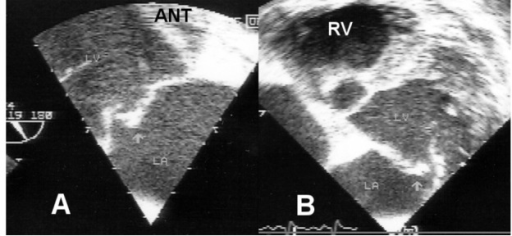Mitral valve prolapse is a condition wherein the flaps of the valve are not closing properly due to thickening of the leaflets forming an upward bulge into the left atrium.
What is the Pathology of Mitral Valve Prolapse?
Mitral valve prolapse pathology is due to thickened and myxomatous leaflets of the mitral valve with an elongated chordae tendineae.
How does Mitral Valve Prolapse Present?
Mitral valve prolapse affects 2-3% of the population and is usually benign that presents with fatigue, dyspnea, exercise intolerance, orthopnea, paroxysmal nocturnal dyspnea, progressive signs of CHF, and palpitations.
How is Mitral Valve Prolapse Diagnosed?
Mitral valve prolapse is diagnosed with 2D echo showing >2mm superior displacement of mitral leaflets into the left atrium during systole with thickness of less than or at least 5mm. Other findings include leaflet thickening, redundancy, annular dilatation, and chorda elongation.
How is Mitral Valve Prolapse Treated?
Mitral valve prolapse treatment is surgery for those with severe regurgitation. For the asymptomatic patients no treatment is required.
What is the Prognosis of Mitral Valve Prolapse?
Mitral valve prolapse prognosis is excellent with most of the patients being asymptomatic and only 5-10% progressing to severe regurgitation.



